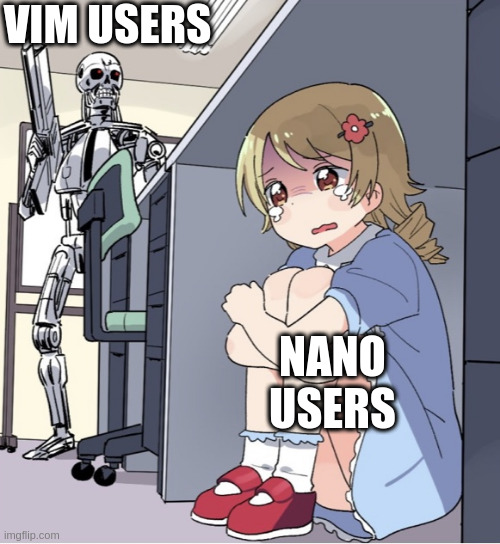this post was submitted on 02 Sep 2024
386 points (93.3% liked)
Linux
48905 readers
1527 users here now
From Wikipedia, the free encyclopedia
Linux is a family of open source Unix-like operating systems based on the Linux kernel, an operating system kernel first released on September 17, 1991 by Linus Torvalds. Linux is typically packaged in a Linux distribution (or distro for short).
Distributions include the Linux kernel and supporting system software and libraries, many of which are provided by the GNU Project. Many Linux distributions use the word "Linux" in their name, but the Free Software Foundation uses the name GNU/Linux to emphasize the importance of GNU software, causing some controversy.
Rules
- Posts must be relevant to operating systems running the Linux kernel. GNU/Linux or otherwise.
- No misinformation
- No NSFW content
- No hate speech, bigotry, etc
Related Communities
Community icon by Alpár-Etele Méder, licensed under CC BY 3.0
founded 5 years ago
MODERATORS
you are viewing a single comment's thread
view the rest of the comments
view the rest of the comments

The problem I had with nano is that, for the time being, it was supposed to be easy to use. With that in account I always get lost when saving a file and closing the thing because one's used to doing something else with Ctrl+O and Ctrl+X.
Whereas with Vim (and Neovim for a little while, and now with Vis) I knew it had a steep learning curve from the start so I always had it in mind. And all the funny stories about quitting vim.
they've changed those bindings now, Ctrl+S, Ctrl+X, Ctrl+V, and Ctrl+C all do what you think they do
Great, now the next time I use nano I surely will forget about this and get frustrated when trying to save a file with Ctrl+O
you still can, but I think Ubuntu and other prepacked distros will switch soon to the better bindings
Great so now I will mangle all my merge commits depending on which version the host is using.
I'm thinking Ctrl+C quits and Ctrl+S is scroll lock is that correct?
nanonano --modernbindings